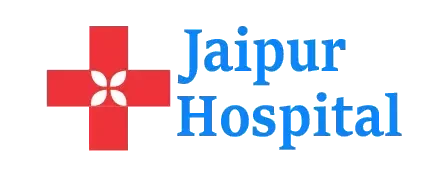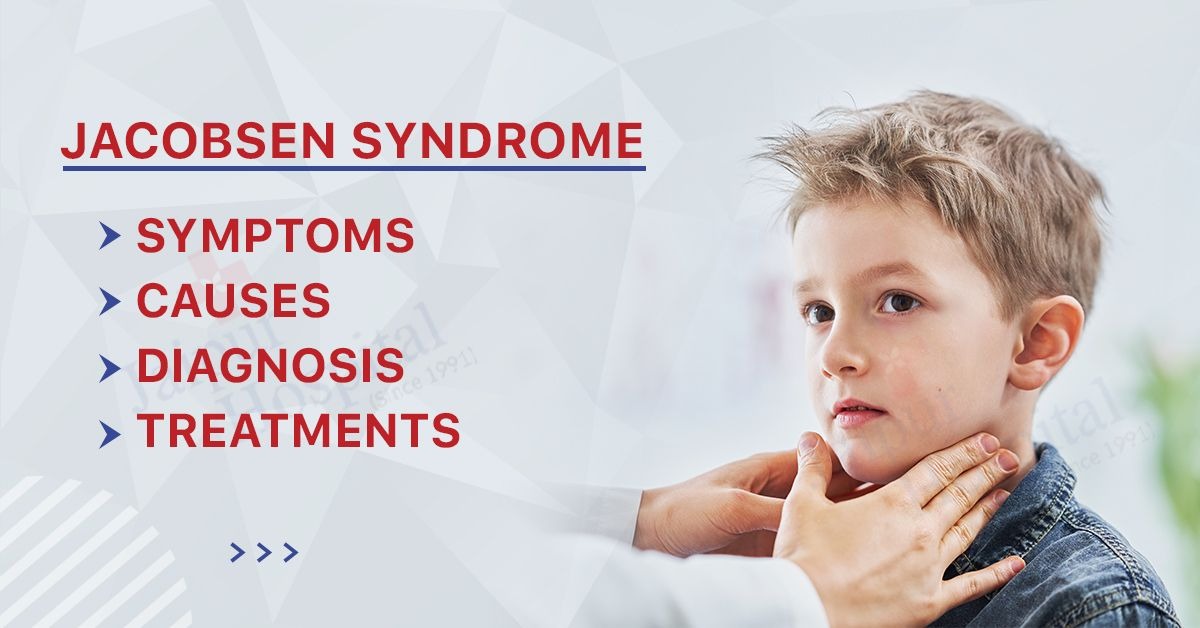What is Jacobsen syndrome?
Several genes on chromosome 11 are deleted in Jacobsen syndrome, a condition that is caused by this deletion. Though signs and symptoms differ from person to person, they frequently include Paris-Trousseau syndrome (a bleeding disorder), distinctive facial features, delayed speech and motor skill development, and cognitive impairment.
Compulsive behavior, ADHD, congenital heart defects, short stature, and/or skeletal abnormalities are some additional characteristics that may exist. Most of the time, the deletion that results in Jacobsen syndrome is a random occurrence brought on by a mistake in cell division.
Sometimes a deletion is inherited from an unaffected parent through a balanced translocation by the affected child. Each patient’s specific symptoms will determine the best course of treatment.
Symptoms of Jacobsen syndrome
Numerous symptoms and physical deformities are brought on by Jacobsen syndrome. An early sign that parents might observe is unusually slow growth, both during pregnancy and after birth.
Jacobsen syndrome patients frequently grow shorter than average as adults. They might also have macrocephaly, which is an abnormally large head. Another frequent sign is trigonocephaly. As a result, the forehead appears pointed.
You can also read:- Broken Tailbone: Causes, Symptoms, Treatment, and Recovery
Unique facial features are among other physical symptoms. These include:
● wide-set eyes and sagging eyelids
● tiny low-set ears
● the nasal bridge is wide
● the small lower jaw and mouth’s corners turned downward
● lips with a thin appearance
● the inner corners of the eyes are covered with skin folds
The Jacobsen syndrome is frequently accompanied by cognitive impairment. This may result in delayed development, which may affect the acquisition of speech and motor skills. Some newborns may have feeding issues. Many will also experience learning disabilities, some of which may be very serious.
Another symptom of Jacobsen syndrome is behavioral issues. These may be connected to compulsive behavior, an easy ability to become distracted, and a short attention span. Jacobsen syndrome and ADHD are common co-morbidities. It also has a connection to autism.
What causes Jacobsen syndrome?
Genetic material at the end of the long (q) arm of chromosome 11 is deleted, which results in Jacobsen syndrome. Although the size of the deletion varies from person to person who is affected, the deleted area almost always contains the tip of chromosome 11.
The multiple genes lost within the deleted region are related to the distinctive characteristics of Jacobsen syndrome. Many body parts appear to require these genes for normal development, even though it is unclear what exactly their functions are in some cases.
More severe signs and symptoms are generally associated with larger deletions than smaller deletions. In about 85% of cases, the deletion results from a random mistake made during the development of the egg or sperm or a mistake made during cell division during the early stages of fetal development.
An example of this is a de novo deletion. A balanced translocation in one parent or other uncommon types of chromosome rearrangements is the main cause of deletions in about 15% of cases.
Even though Jacobsen syndrome is typically not inherited, a person with the condition can pass the deletion to their offspring.
What are the risk factors for Jacobsen syndrome?
Since Jacobsen Syndrome develops as a result of a spontaneous deletion during cell division, the precise risk factors for the condition are currently not well understood. However, the following should be noted:
● The presence of family history may increase risk in 5–10% of people with the inherited form of the syndrome.
● The female gender may be regarded as a risk factor for developing Jacobsen Syndrome given that it is estimated that nearly 65% of those affected are female.
● It is crucial to understand that merely having a risk factor does not guarantee that one will develop the condition. Compared to someone without a risk factor, one has a higher chance of developing a condition. Different risk factors have different levels of significance.
A person may still develop the condition even if they do not have a risk factor. Speaking with your healthcare provider about the impact of risk factors is always important.
How is Jacobsen syndrome diagnosed?
The following factors may be used to make an accurate diagnosis of Jacobsen Syndrome:
● A complete medical examination
● An assessment of family history
● An evaluation of symptoms including facial abnormalities, developmental milestone delays, unusual bruising, behavioral issues, and cognitive problems
● Clinical findings confirmed by cytogenetic analysis
● Jacobsen Syndrome in the developing fetus may be identified by expecting parents using methods like fluorescence in-situ hybridization (FISH) and DNA microarray analysis on samples of amniocytes or chorionic villus.
The effects of such genetic changes in a child’s genome may be explained to prospective parents by genetic counselors.
Similar symptoms and signs can be seen in a variety of clinical conditions. To rule out other clinical conditions and make a conclusive diagnosis, your healthcare provider might perform additional tests.
You Can Also Read:- What is Metabolic Confusion & How Does Metabolic Confusion Diet Work?
Complications of Jacobsen syndrome
Jacobsen syndrome complications include the following:
● Despite being common, platelet disorders like Paris-Trousseau Syndrome are a serious side effect of Jacobsen syndrome[8].
● Heart disorders: holes between the left and right lower chambers, hypoplastic left heart syndrome, and left-sided heart abnormalities [4]
● Having only one kidney, having two ureters (the tubes that connect the kidneys to the bladder), hydronephrosis, or having swollen cysts are all examples of kidney issues.
● Due to a constrained or blocked passageway from the stomach to the intestines, gastrointestinal issues like pyloric stenosis cause forceful vomiting. Other issues can be a blocked or narrow anus, constipation, intestinal obstruction, missing GI tract components, or abnormal gut positioning.
● Cataracts
● Infections of the nose and ears
Treatment for Jacobsen syndrome
For Jacobsen syndrome, there is no treatment. However, some symptoms can be relieved by treatments. The following specialists are frequently needed to provide care for newborns:
● pediatricians
● pediatric cardiologists
● neurologists
● ophthalmologists
● orthopedic specialists
Surgery may be required to correct malformations, such as gastrointestinal adjustments. Infants with significant cardiac defects may require heart surgery. Antibiotics may be required with heart surgery (ORDR) due to the increased risk of bacterial infection of the heart lining and valves.
There should be regular monitoring for blood or platelet issues. Any type of surgery could call for transfusions. Respiratory, sinus, and ear infections should be treated promptly as soon as possible.
Glasses, contact lenses, or eye surgery can help correct vision problems. Orthopedic procedures can be used to correct abnormalities in joints, tendons, muscles, and bones. These may be used in conjunction with surgery.
Physical therapy may aid in the improvement of coordination and movement. Physical, speech, and occupational therapy are all treatments for delayed development. Learning and behavior management might be aided by special education classes and psychological counseling. Early intervention is critical for assisting affected children in reaching their full potential.
How can Jacobsen syndrome be prevented?
● Since Jacobsen syndrome is a genetic condition, there are currently no established preventative measures or recommendations.
● Prenatal diagnosis, which involves molecular testing of the fetus while pregnant, and genetic testing of the expectant parents (and their close relatives), may help people better understand the risks associated with pregnancy.
● Genetic counseling will help determine risks before becoming pregnant if there is a family history of the condition.
● There is currently active research being done to investigate the potential for treating and preventing inherited and acquired genetic disorders like Jacobsen syndrome.
● Individuals with this genetic disorder are strongly advised to undergo periodic medical screenings, tests, and physical examinations.


